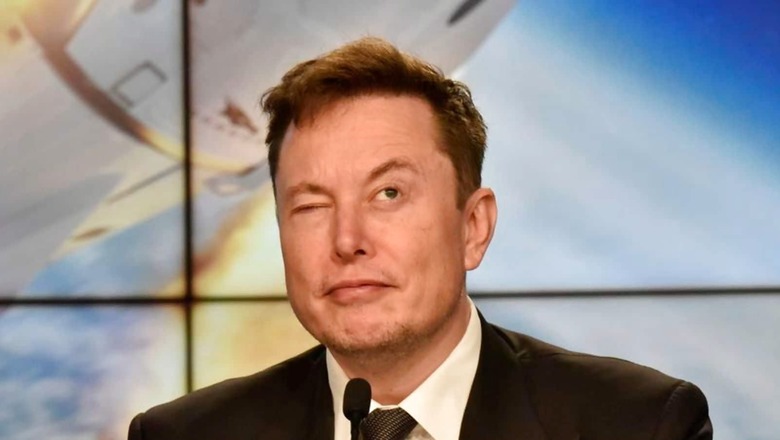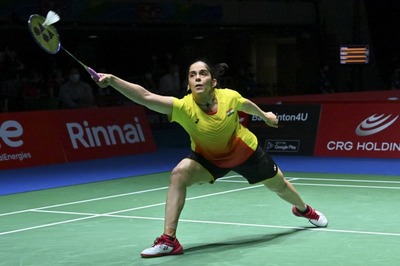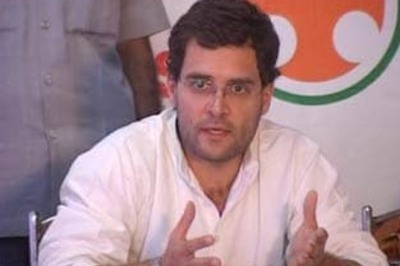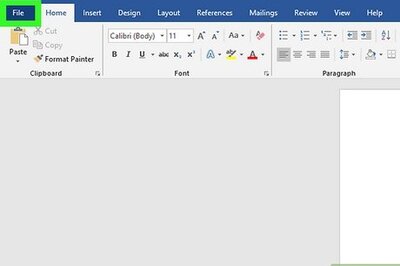
views
The expected acquisition of Twitter by billionaire Elon Musk has sparked a debate in the United States over freedom of expression and the role of social media platforms in regulating information flow.
Even though Musk has addressed himself as a “free speech absolutist” and made it the core of his agenda after the Twitter takeover, some human rights groups believe that this latest development may influence hate speech on the microblogging platform.
Prior to his bid to take over Twitter, Musk had complained about the company’s censorship of tweets it deemed offensive or misinformation, but it’s unclear how the prospective change of ownership will influence the day-to-day user experience.
He has stated that Twitter must evolve into a true venue for free speech. Musk called free expression “the backbone of a functioning democracy” in a statement released after the deal was finalised.
Concerns
But some have expressed concern that the platform could be used to propagate hate speech and misinformation without protection.
For example, Deborah Brown, a digital rights researcher and advocate at Human Rights Watch, told Reuters that regardless of who controls Twitter, it has a human rights obligation to respect the rights of those who use the network all around the world.
“Changes to its policies, features, and algorithms, big and small, can have disproportionate and sometimes devastating impacts, including offline violence,” Brown stated.
Additionally, she said: “Freedom of expression is not an absolute right, which is why Twitter needs to invest in efforts to keep its most vulnerable users safe on the platform.”
The NAACP or the National Association for the Advancement of Colored People, which is a civil rights advocacy organisation in the US, said in a statement: “Mr Musk: free speech is wonderful, hate speech is unacceptable. Disinformation, misinformation and hate speech have NO PLACE on Twitter.”
Michael Kleinman, who is Amnesty International USA’s director of technology and human rights, said that Twitter has a responsibility to defend human rights, including the right to live free of discrimination and violence, as well as the right to freedom of expression and opinion, regardless of who owns the company.
“We are concerned with any steps that Twitter might take to erode enforcement of the policies and mechanisms designed to protect users. The last thing we need is a Twitter that willfully turns a blind eye to violent and abusive speech against users, particularly those most disproportionately impacted, including women, non-binary persons, and others,” he said in a statement.
Anthony Romero, executive director at the American Civil Liberties Union (ACLU), told Reuters that while Elon Musk is an ACLU member and one of its most ardent supporters, there is a great deal of risk in putting so much power in the hands of a one person.
It is noteworthy that after the Twitter board agreed to sell the platform to the Tesla CEO for $44 billion, in the US many conservatives began cheering the prospect of a less-regulated platform, with the House Republican Conference pressing Musk to reactivate former President Donald Trump’s handle.
Trump’s account was suspended indefinitely following the US Capitol riots of January 6, 2021, during which, according to many, he posted provocative videos and posts.
The NAACP though warned against enabling Trump to return to Twitter or allowing the medium to become a “petri dish” for lies.
“Protecting our democracy is of utmost importance, especially as the midterm elections approach. Mr Musk: lives are at risk, and so is American democracy,” the group noted in the statement.
Meanwhile, Florida Governor Ron DeSantis, a prominent Republican and likely presidential candidate in 2024, said that Musk’s bid to buy Twitter “raises the prospect that the platform will be a place where free speech can thrive, not a tool for narrative enforcement”.
Even from the Twitter handle of House Republicans, it was tweeted, “Hey @elonmusk it’s a great week to free @realDonaldTrump.”
In response to the announcement, Republican Congressman Jim Jordan, an ardent Trump supporter, tweeted, “free speech is making a comeback”.
Trump, on the other hand, has said he will not return to the social media platform, where his posts during his stay in the White House sparked frequent debate and, at times, provoked worldwide diplomatic crises.
The former President said: “I am not going on Twitter, I am going to stay on Truth [Truth Social]. I hope Elon buys Twitter because he’ll make improvements to it and he is a good man, but I am going to be staying on Truth.”
Free Speech And India
In terms of use of free speech, the rules in India are different from what we see in the US. The first constitutional amendment, enacted in 1951, imposed “reasonable restrictions” on the fundamental right to free speech and expression guaranteed by Article 19(1)(a). The restrictions were imposed to protect the “sovereignty and integrity of India, the security of the State, friendly relations with foreign States, public order, decency or morality, or in relation to contempt of court, defamation or incitement to an offence”.
Such constraints, which the Supreme Court later supported, might potentially clash with Musk’s free speech idea. The Indian government has often warned social media platforms that the content that appears on the platform must comply with Indian regulations.
It is noteworthy that the government can send takedown notices to social media sites like Twitter under Section 69(A) of the Information Technology Act of 2000 if a user shares content that is restricted under the Constitution, which the platform must then remove.
If Twitter chooses not to take down any such tweets, then it could cause legal trouble. For example, Manish Maheshwari, Twitter’s then India head, was summoned by the Uttar Pradesh Police in 2021 after a video propagating misinformation on the platform went viral.
Here it should be also noted that the IT Rules, which were introduced in February 2021, require social media platforms to designate a compliance officer whose job it is to ensure that the company follows all of the stipulations.
According to the IT Rules, if a company fails to do so, its chief compliance officer could be held liable in any proceedings relating to any relevant third-party information, data, or communication link made available or hosted by that intermediary where he or she fails to ensure that such intermediary observes due diligence while discharging its duties.
Read all the Latest Tech News here


















Comments
0 comment